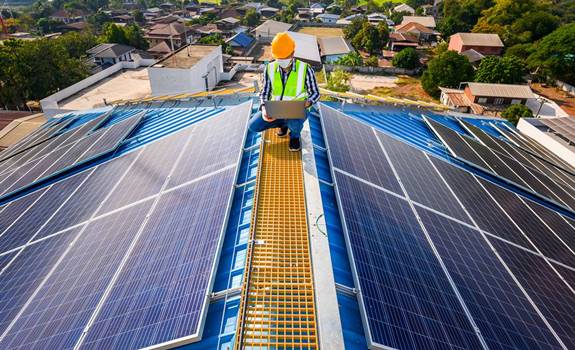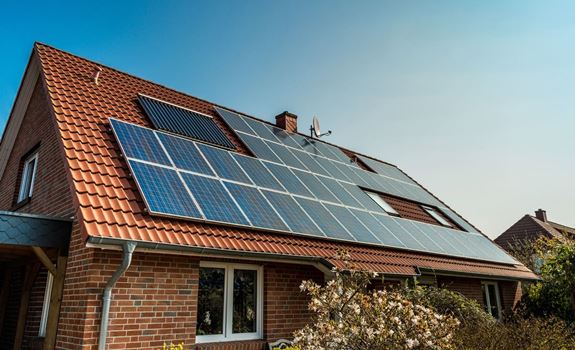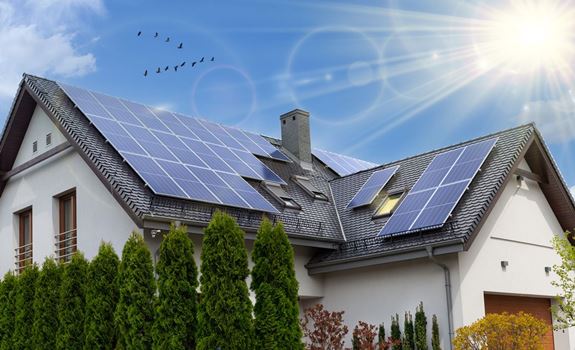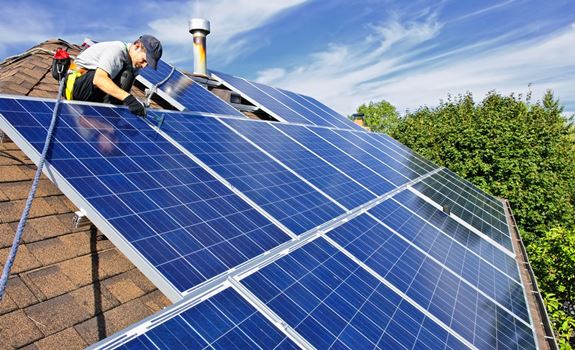Given the high upfront costs of getting solar, you may be wondering how you can join over 3 million households in the USA enjoying the benefits of this amazing power source. You do that with a solar panel lease!
PV panel prices have dropped dramatically in recent years, making them more accessible than ever before. At the same time, organizations that provide the solar panel lease option, like PPM, have become more prevalent, offering you an alternative to purchasing panels and enjoying the perks right away.
If you are one of those looking for a cheaper way to get it, this article will help you understand the choice between solar panel leasing vs buying.

What Is a Solar Lease?
A solar panel lease is a contractual deal between a householder and an organization that installs the equipment and charges you a fixed monthly fee.
The organization owns the system and maintains the equipment while you pay the fee for all the benefits of the solar system. Just like you would rent a residence and not pay for constructing the house, you rent solar panels through a lease without facing the cost of setting up the system.
Is It Different from a PPA?
For many people, the biggest challenge in getting PV panels is the high capital cost.
Luckily, there are two options that allow you to avoid the upfront cost and start enjoying all the benefits that home solar power brings: renting and power purchase agreements.
While the two are largely similar, they mainly differ in how you pay. With a lease, your fee is fixed, while with a PPA, there is a fixed price per kWh that you use. The amount you pay for a PPA will vary based on the amount of energy you use.
How Does Leasing Work?
When you rent solar panels for your home you agree to pay a fee for a certain period, usually a decade or two decades while you use the energy from the solar system. You do not own the system. Rather, the solar company owns and maintains the panels, and you get the benefit of reduced energy bills. Your monthly fee can increase by 2 – 3% annually when an escalator clause is included. In some cases, you can also have the arrangement to purchase the system at the end of the period.
If you are still wondering, “Should I lease solar panels?”, read on for some advantages and disadvantages.
Leasing Pros and Cons
One of the questions we get asked often is, “Is leasing solar panels a good idea?”
Here are a few key pros and cons to help you answer that question.
Pros
- One of the biggest advantages of a solar lease is that there is no upfront cost. This means that you can start saving on your electric bill from day one without having to come up with thousands of dollars to purchase solar panels.
- With a solar lease, you will know exactly how much your monthly payment will be for the duration of the lease. This can be helpful in budgeting for your utility costs. You also get to lock in energy prices for the future, even if energy prices go up.
- You are not responsible for the repairs and maintenance of the solar panels.
- Reduced carbon footprint.
Cons
- Solar leases often have long terms (15-20 years), which means you could be stuck with the same company for a long time.
- One of the biggest disadvantages of a lease is that you may not own the solar panels at the end of the lease. This means that you will not be able to take advantage of the federal solar tax credit, which is worth 30% of the cost of solar panels.
- If you decide to sell your property during the lease term, the solar company may require that the new owner continues with the lease agreement. If not, you may be required to pay a break fee to the solar company.
- If you have a solar lease, you may be locked into an energy rate for the duration of the lease if energy rates drop below your monthly fee.
- Solar leases usually include an escalator clause, which means your monthly payments will increase gradually over time. This can be a good thing or a bad thing, depending on how much your energy rates increase over time.
With these pros and cons, you should be able to answer the question, “Is it better to lease or buy solar panels?”

Typical Terms of a Solar Lease
Before you sign on the dotted line, it is important to understand the terms of your lease. Here are a few things to keep in mind:
- The length of your lease will typically be 20-25 years. This may seem like a long time, but keep in mind that the system has a lifespan of up to 4 decades.
- You may have the option to buy your panels at the end of your deal. This can be a good option if you plan on staying in your home for the long term.
- Your deal may include an escalator clause, which means that your payments will increase each year by a certain percentage. This is typically around 2-3% per year.
Published in: Smart home | Author: Lynn






